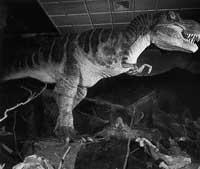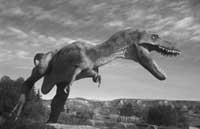Fossils, sell them or store them in museums?
2000/03/01 Kilden, Pette Iturria: Elhuyar aldizkaria
In general, we call fossil to the footprint of the old being that appears in the rocks. Most of the fossils are remnants of beings that have already disappeared. The fossils are, therefore, witnesses of the past, that is, travelers in time. The research of fossils, Paleontology, shows us the origin of life, its development and the adventures. But not only the fossil, but also the rock that houses the fossil and the relations between them are important sources of information. Otherwise, we know little about the past of the Earth. In fact, they can explain how the fossils and rocks were, among other things, the climate, the landscape and the ways of life in which they were formed. The fossil alone cannot tell us all this. Not much less.
Fossils, as curiosities of nature, have been present in different cultures. Here, for example, are the fossils of sea urchins in Basque mythology: The stones of Santiago have protected the houses of the Barranca de Navarra from lightning for centuries. Little by little this cultural value has been evolving and today we can find fossils on sale in some places. The majority of those sold are found with a lot of ease, so they are cheap. Furthermore, these fossils, which are very well known, can give in most cases little information. Pecata minute, therefore. However, another type of fossils like dinosaurs is happening, which until recently we could only see in museums. Three years ago, in an auction held in the USA, the beautiful "Sue" tyrannosaurus was sold for $8.36 million. In January of this year at another auction in Chicago, dinosaur fossils, pterosaurs and many other creatures were sold to museums and private buyers. Shortly afterwards, another tyrannosaurus was put on sale at an Internet auction for 5.8 million dollars. In these cases, in ancient times many scientists complain that fossils fear "disappear" in private property and that the commercial union of fossils can lose relevant information. And that is, in case of fossil excavations, this delicate work must be given to experts to investigate the fossil and rock in its entirety. The law says so. Unfortunately, several deposits are looting unscrupulous collectors.
But amateur paleontology also has its advantages. For example, collecting common fossils can in some measure reinforce the passion for Paleontology. But extraordinary fossils are better in the museums, so that they are not in the hands of everyone, but no one. It must be said that Euskal Herria is rich in fossils. A national museum of Natural Sciences would bring together fans and experts in the protection, research and enjoyment of the fossil.

Gai honi buruzko eduki gehiago
Elhuyarrek garatutako teknologia





